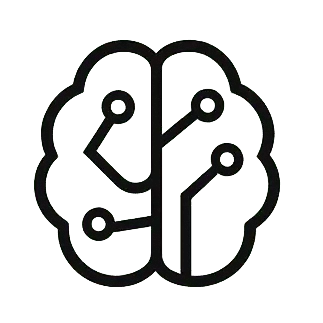TLDR: FourierCSP is a novel continuous optimization framework that extends Continuous Local Search (CLS) from Boolean SAT to general Constraint Satisfaction Problems (CSPs) with finite-domain variables. It transforms versatile constraints into compact multilinear polynomials using a generalized Walsh-Fourier transform, avoiding memory-intensive encodings and auxiliary variables. Leveraging efficient evaluation via circuit-output probability and projected gradient optimization, FourierCSP demonstrates superior scalability and competitiveness on benchmarks like task scheduling and graph coloring with hashing queries, significantly outperforming traditional SAT, ILP, and CP solvers, especially for problems with structured constraints and larger sizes.
Constraint Satisfaction Problems, or CSPs, are a cornerstone in various fields, from mathematics and physics to artificial intelligence and computer science. These problems involve finding an assignment of variables that satisfies a given set of constraints. While traditional methods like Boolean Satisfiability (SAT) solvers have seen significant success, they often face hurdles when dealing with more complex, real-world scenarios.
Historically, CSP solvers fall into two main categories: systematic search and local search. Systematic methods, such as those based on the Branch-and-Bound framework, are complete, meaning they can prove unsatisfiability or optimality given enough time. However, SAT solvers, a prominent systematic approach, primarily handle Boolean (true/false) variables and often require complex and memory-intensive conversions (Booleanizations) for problems with finite, multi-valued variables. This can lead to a substantial increase in problem size and inefficiency.
Integer Linear Programming (ILP) and Constraint Programming (CP) offer more general formulations but also come with their own limitations. ILP solvers can provide compact representations but may lack the Boolean reasoning power of SAT solvers. CP solvers are native to diverse variable types and constraints but often struggle with scalability compared to ILP, especially for constrained optimization.
Local search methods, on the other hand, aim to find feasible solutions efficiently without necessarily proving unsatisfiability. These can be discrete or continuous. Continuous Local Search (CLS) solvers, which transform SAT problems into continuous optimization problems, have recently shown competitive results on specific types of SAT problems. However, a significant limitation of previous CLS solvers, including FourierSAT and GradSAT, was their exclusive design for Boolean constraints, restricting their applicability to problems with inherently finite, multi-valued variables.
Introducing FourierCSP: A New Approach
A groundbreaking new framework, FourierCSP, addresses these limitations by extending the CLS approach to general Constraint Satisfaction Problems with finite-domain variables and expressive constraints. This innovation means that FourierCSP can directly handle multi-valued variables without the need for cumbersome Booleanization or auxiliary variables, which often bloat the problem size and memory requirements in other solvers. For more in-depth technical details, you can refer to the full research paper here.
The core of FourierCSP lies in its generalization of the Walsh-Fourier transform. This allows it to convert a wide range of constraints into compact multilinear polynomials. This transformation is crucial because it enables the problem to be framed as a continuous optimization task. The framework then leverages efficient evaluation and differentiation of the objective function through a concept called circuit-output probability (COP), combined with a projected gradient optimization method that comes with strong theoretical guarantees for convergence.
Empirical Validation and Performance
The researchers put FourierCSP to the test against state-of-the-art SAT-based, ILP-based, and CP-based complete solvers on various benchmark suites, including task scheduling and graph coloring problems with hashing queries. The results were highly encouraging, demonstrating FourierCSP’s scalability and competitiveness.
On task scheduling problems, FourierCSP solved all 150 instances within the given time limit, significantly outperforming other solvers. For instance, it achieved a 13.88 times speedup in PAR-2 score compared to OR-Tools CP-SAT and even greater speedups against Gurobi-ILP and LinPB. This superior performance is attributed to FourierCSP’s ability to exploit fine-grained improvements in the continuous objective function, unlike discrete local search methods that can get stuck on plateaus.
Furthermore, FourierCSP excelled in constraint optimization problems like graph coloring with hashing queries, especially those involving challenging modulo constraints. While many conventional solvers struggle with these, FourierCSP natively accommodates them through its uniform Fourier expansion framework. It achieved the best objective value for 84 out of 160 instances and a relative score of 0.98, surpassing all competitors. Notably, FourierCSP showed improved scalability and maintained solution quality as problem instance sizes increased, suggesting a qualitative advantage for larger, more complex problems.
Also Read:
- Hybrid-Balance GFlowNet: A New Framework for Enhanced Vehicle Routing Solutions
- Unlocking Wordle’s Secrets: How Constraint Satisfaction Improves Guessing Strategies
The Future of Constraint Solving
FourierCSP represents a significant advancement in the field of constraint satisfaction. By extending continuous optimization techniques to general CSPs, it broadens the class of problems that can be efficiently tackled. The framework’s reliance on GPU parallelism for accelerated computation also positions it well for future integration with advanced parallel hardware. This work opens new avenues for research, particularly in exploring how this parallelism can be effectively utilized for constraints that exhibit less structural patterns, further generalizing its applicability.


